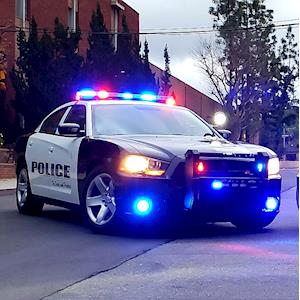Let's proceed with procedurals (pardon me) and their general qualities.
6. Police Procedurals have humor.
How else can they deal with the gore? Jerry Orbach's character on "Law and Order" always had a wisecrack as the corpse was hauled away. Much of the humor in cop novels is adolescent prurience, but Waumbaugh and McBain have light moments in the precinct. The parade of kooks, loonies, and fanatics also makes for a comic atmosphere.
7. Criminals are dragged into public view, to show how police must deal with sick and stupid people.
Cops don't match wits with intelligent, sophisticated schemers; they deal with drunks, pushers, addicts, child molesters, psychos, rapists, petty thieves, and the mentally ill. Crooks don't have the intelligence and nerve to plan and perform a well-thought-out crime. They do crimes for petty reasons, and they do little to cover their tracks. They are hard to find because of the immensity of the city, or a code of silence among rural dwellers. Police are the garbage collectors of society, and for many books this is the main point.
8. The police procedural, beginning with Maigret, moves away from the 'genius detective' model and shows normal people solving crimes not by powerful 'ratiocination' and deduction, but by dumb luck and dogged routine.
Police heroes are hard-working middle-class individuals who do their job well under stress. The police novel is the literature of the proletariat (working class), celebrating duty in one's work.
9. Police procedural plots avoid the neat closure of Golden Age stories, which featured the "parlor explanation" and clever solution at the end.
Most police writers saw this as phoney, and still do. Instead of having ther 'hidden but present' criminal, McBain and others follow the criminal and the cop separately, like thrillers do. Thus, the task becomes not 'whodunnit,' but 'how-catch-em'. The puzzle is replaced by the problems of gathering evidence. Clues are not planted cleverly in a game with the reader. Crime scene reports and lists of items in evidence provide atmosphere, not clues to who dunnit. Often, the exhausting investigation leads to an arrest but no sense of triumph or unmasking, as in Golden Age stories. There is only the sense that it is finally over and other cases can now be pursued. Police work never ends. Some writers weave in several crimes being worked on simultaneously, with some never solved. Sometimes they relate thematically, like an A and a B story in a sit-com, but more often than not, they illustrate the busy-ness of the precinct (and help to extend the word-count that publishers require). So the clean and clever denoument, so important to Poe, Doyle, Christie, and Queen, becomes unimportant. These are novels of character and atmosphere, sometimes with social commentary. In fact, it may be said that:
10. The main character might be the setting itself.
For urban stories, the procedural expands the hardboiled description of the 'mean streets.' Delinquency, drug trafficking, human trafficking, racial conflict, and prostitution fester in cities, which are huge, unfeeling, chaotic, and cruel. Grimy tenements, sleazy bars, and dark alleys set many scenes. The weather is always awful: damp and cold, or humid, and often raining, adding to the dismal atmosphere.
For rural stories, the landscape itself can be dangerous. As William Kent Kreuger notes about his northern Minnesota setting, "The weather can kill you." Remote areas have their own kind of desperate poor. Long-term violent rivalries and grievances fester among families, and the brutality of impoverished people is often contrasted to the breathtaking beauty of the land.
To conclude:
While the police procedural does not (usually) provide the clever mental stimulation of the classic puzzle, or the vicarious excitement of the hardboiled story, it does attain the realism that the other sub-genres tried to achieve. It breaks the phoniness of "mysteries of manners" and, coming as it did in the 1950s, affirms the value of a regular people showing up for work and doing their job.
